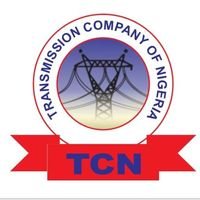Nigeria’s power sector has recorded a major milestone as the Transmission Company of Nigeria (TCN) confirms that electricity generation has surged to 5,713 megawatts (MW), marking a significant step towards energy stability. The increase in power generation comes at a crucial time when Nigerians are demanding improved electricity supply amid ongoing challenges in the sector. While the development signals progress in the country’s electricity generation capacity, concerns remain over whether it will translate into a stable and uninterrupted power supply for businesses and households.
The TCN attributes the rise in generation to several strategic measures, including improved grid maintenance, enhanced coordination with power-generating companies, and continued investments in transmission infrastructure. The company has been working closely with generation and distribution stakeholders to ensure a more stable and efficient electricity supply, and this latest development is seen as a result of those efforts. Over the years, Nigeria’s power sector has faced challenges related to insufficient generation, transmission bottlenecks, and poor distribution infrastructure, leading to frequent blackouts that disrupt economic activities and daily life.
The power generation milestone reflects progress in the sector, but energy experts argue that the real challenge lies in the distribution of electricity. While TCN is responsible for transmitting generated power, the distribution companies (DisCos) play a crucial role in ensuring that electricity reaches end-users. Many Nigerians continue to experience erratic power supply due to issues such as outdated infrastructure, technical losses, and financial constraints within the distribution segment. Without significant improvements in the distribution network, the increase in power generation may not bring the relief that many citizens and businesses are hoping for.
Energy analysts highlight that Nigeria’s current electricity demand far exceeds available supply, with estimates suggesting that the country needs at least 30,000MW to meet its growing population and industrial needs. While achieving 5,713MW is a positive step, it remains far below the required capacity to support economic growth, industrial expansion, and improved living conditions for millions of Nigerians. To bridge this gap, experts advocate for sustained investment in transmission and distribution networks, policy reforms that encourage private sector participation, and initiatives that promote renewable energy sources to diversify the power mix.
The Nigerian government has consistently pledged to revamp the power sector, implementing policies aimed at addressing challenges in generation, transmission, and distribution. Several projects, including grid expansion initiatives and collaborations with private investors, are in progress to enhance the efficiency of the power supply chain. However, for real transformation to take place, industry stakeholders emphasize the need for accountability, transparency, and the implementation of long-term solutions rather than short-term fixes.
As the power sector continues to evolve, businesses and households remain hopeful that improvements in generation capacity will lead to a more reliable electricity supply. Many industries in Nigeria spend a significant portion of their operating costs on alternative power sources such as diesel generators due to the instability of the national grid. A more stable electricity supply would reduce overhead costs for businesses, boost productivity, and create an environment conducive to economic growth and job creation. Households, on the other hand, would benefit from lower energy costs and a higher quality of life if power becomes more stable and accessible.
With the latest increase in generation capacity, attention now shifts to how effectively the power generated will be transmitted and distributed across the country. The success of these efforts will depend on a coordinated approach involving the government, private sector investors, regulators, and electricity consumers. While there is optimism about the recent progress, stakeholders stress that more needs to be done to ensure that Nigeria’s power sector delivers sustainable, efficient, and reliable electricity to all.
Nigeria’s journey towards energy stability remains a work in progress, and the recent milestone achieved by TCN serves as a reminder of both the strides made and the challenges that still need to be overcome. For real change to be felt by the masses, reforms must go beyond generation and address the root causes of distribution inefficiencies, ensuring that increased power generation translates into improved supply across the country. The coming months will be critical in determining whether the momentum gained in power generation can be sustained and whether Nigerians will finally experience the stable electricity supply they have long demanded.


